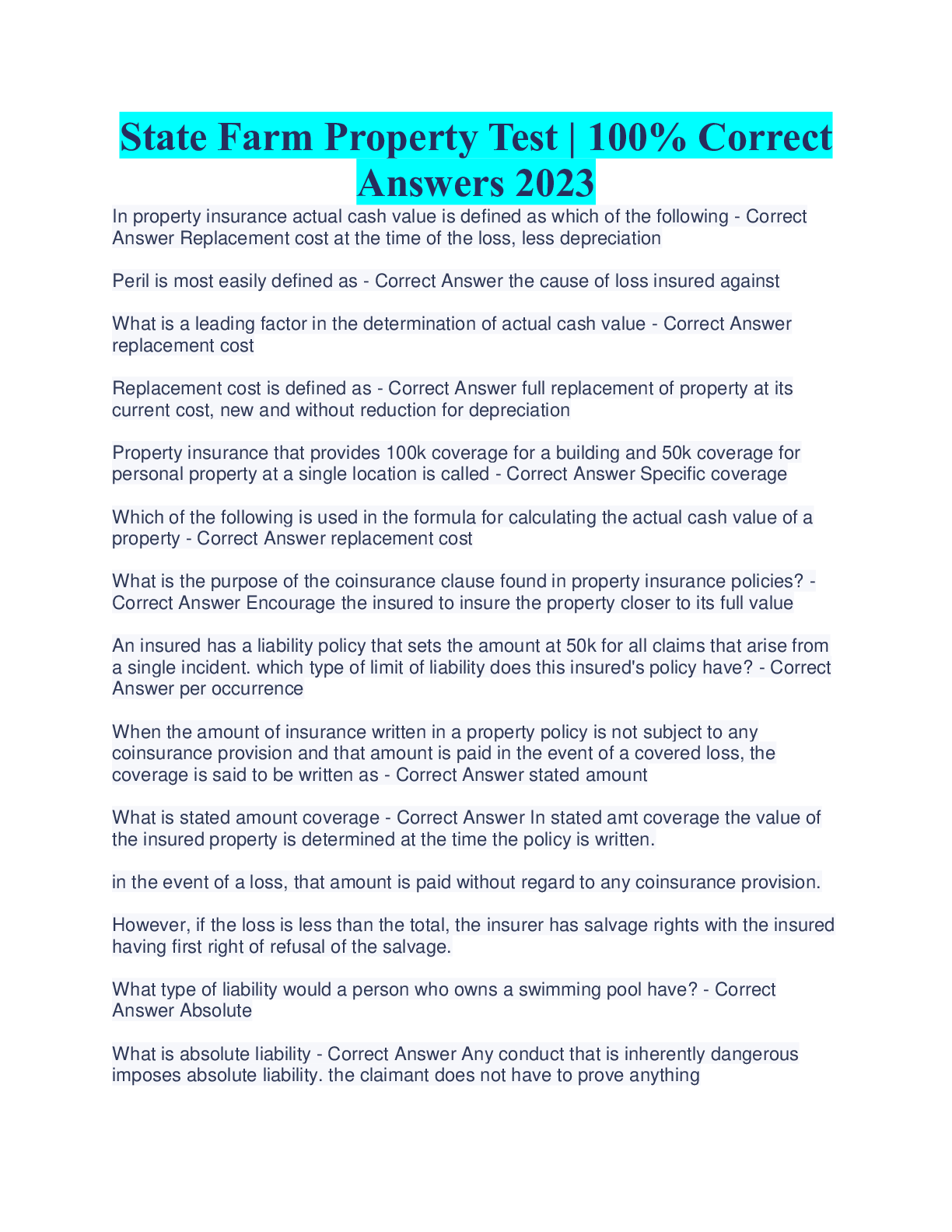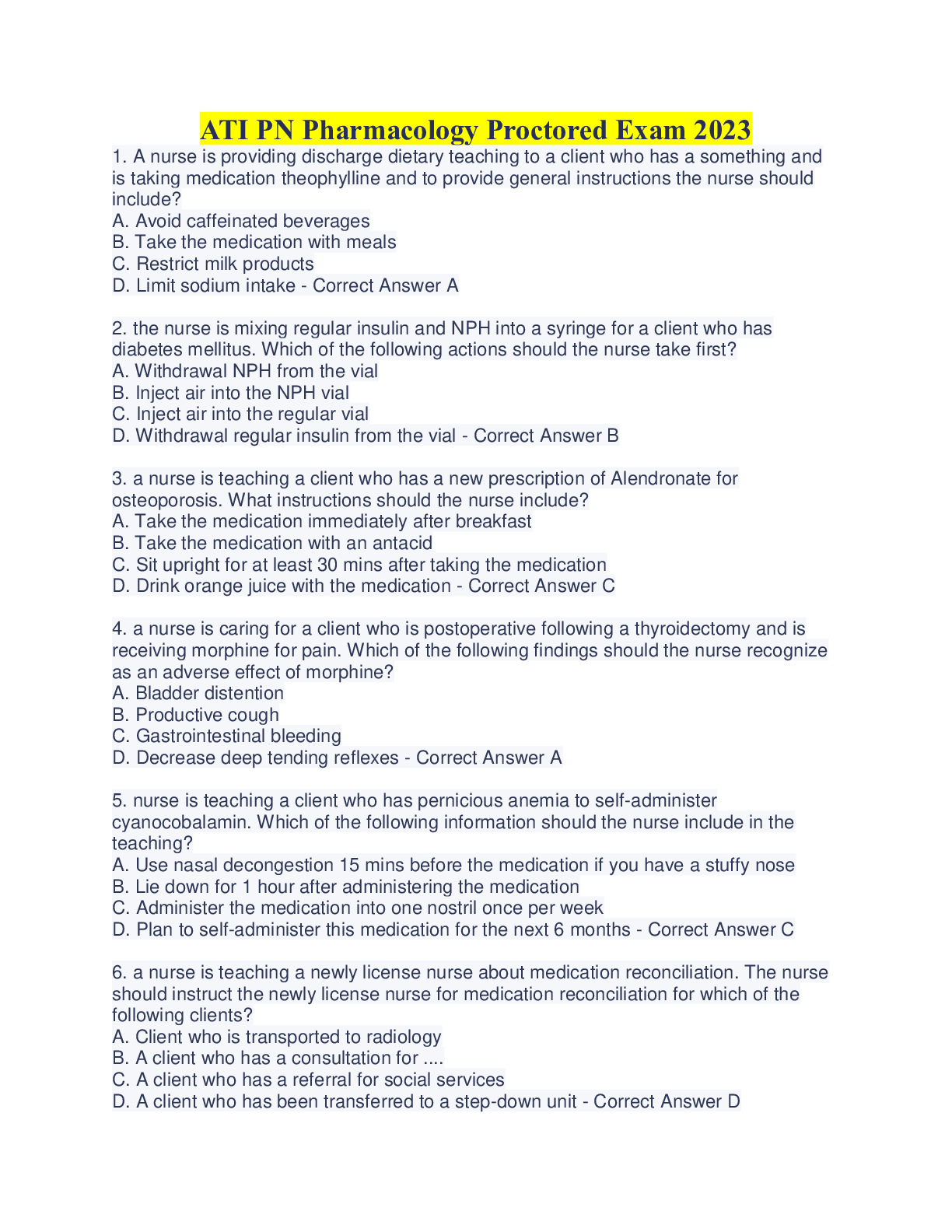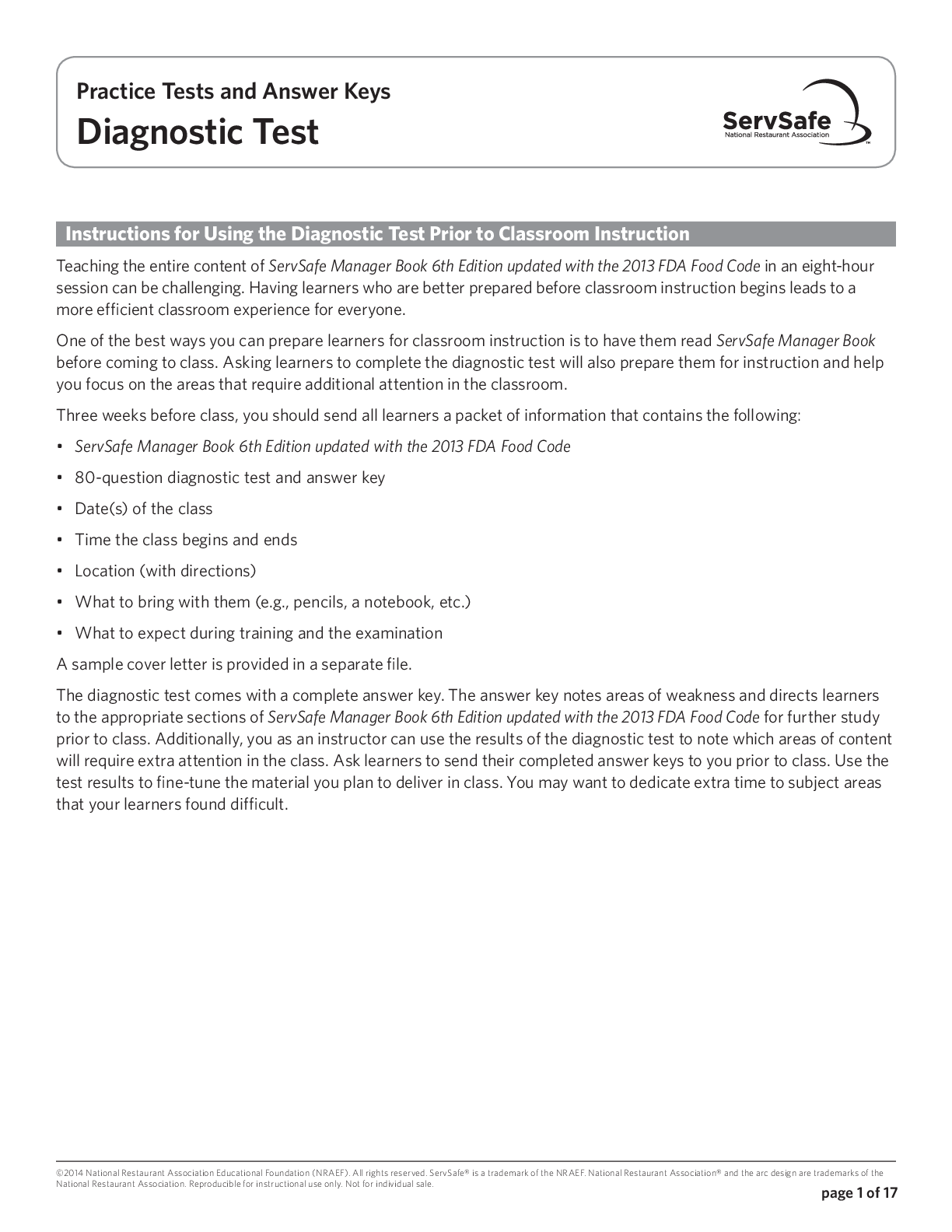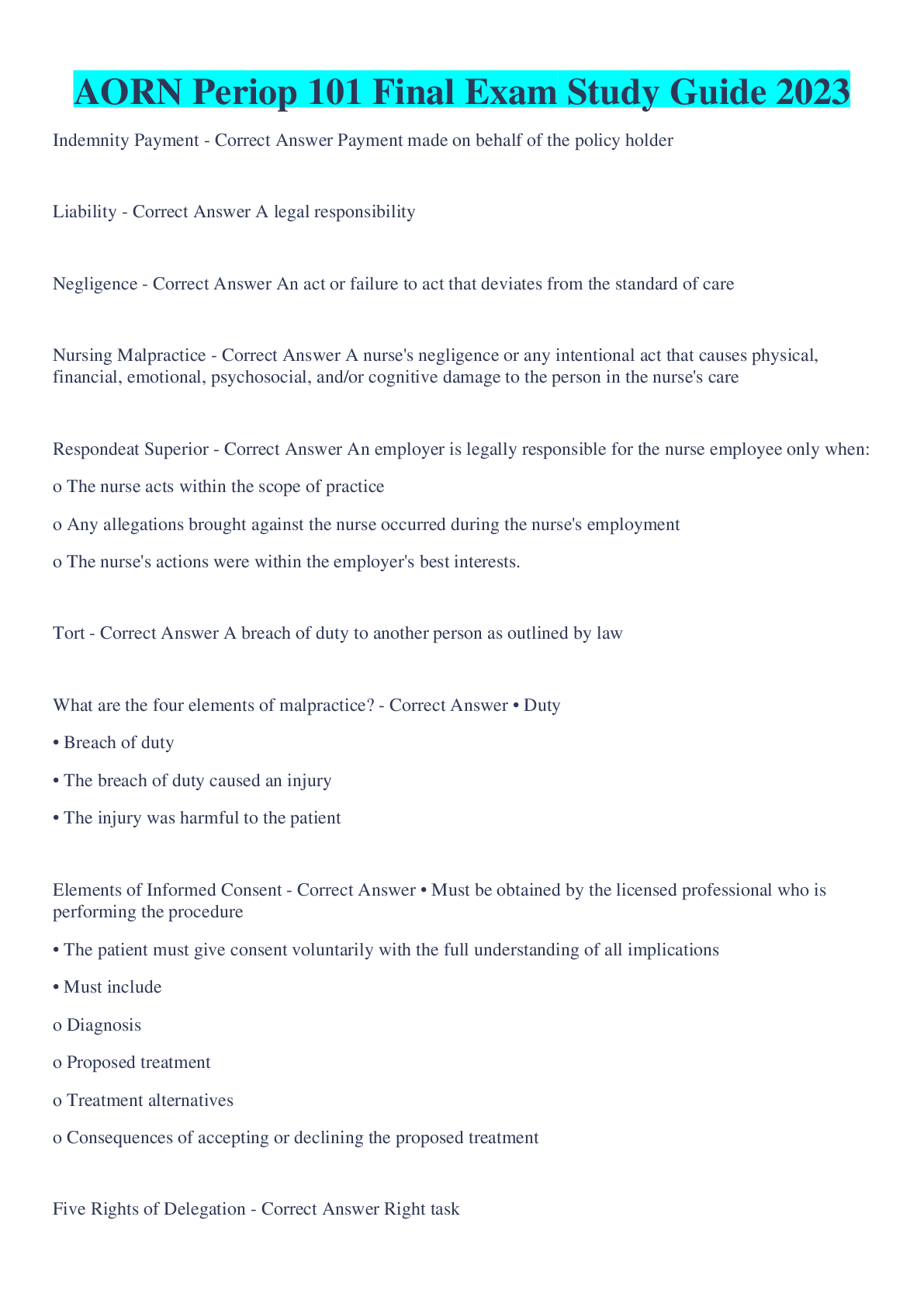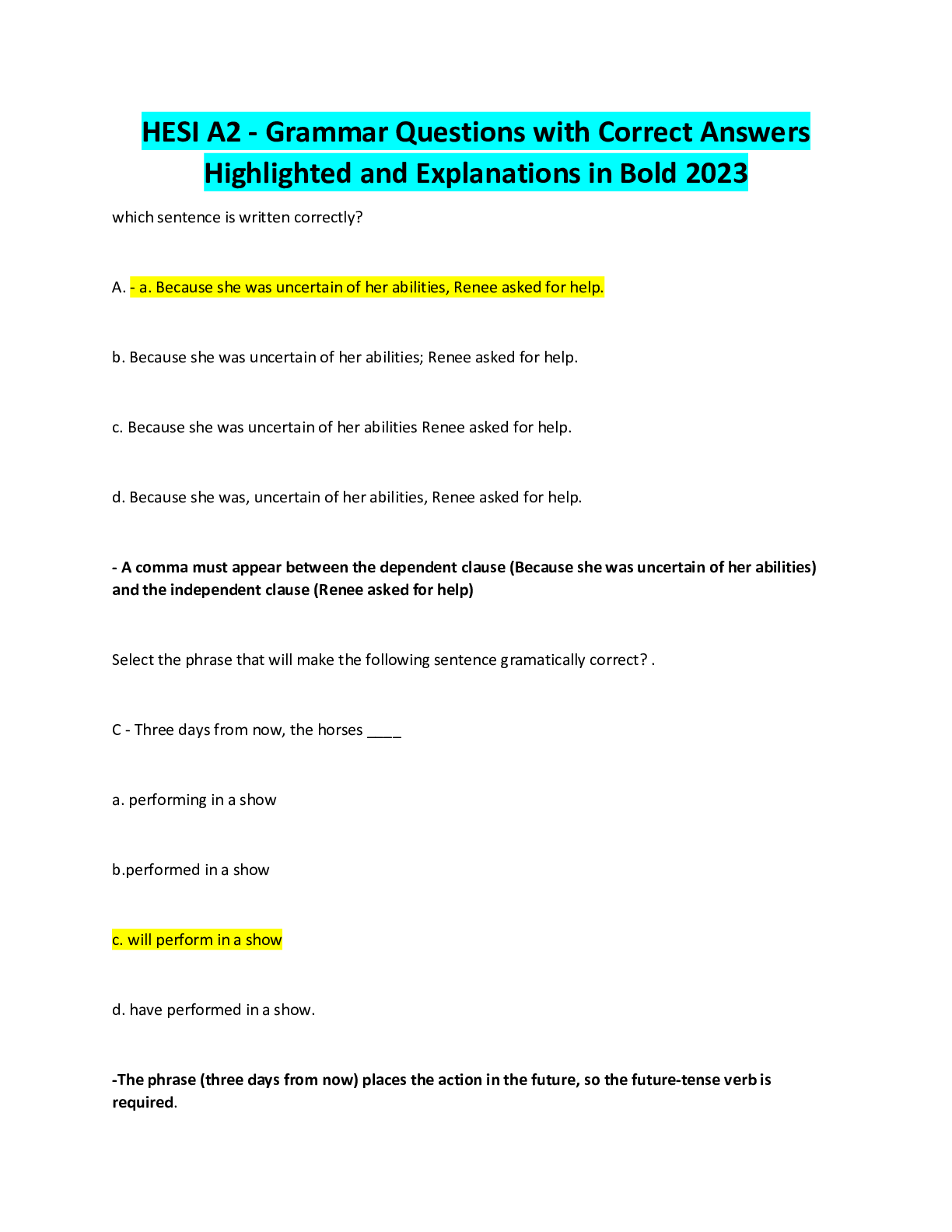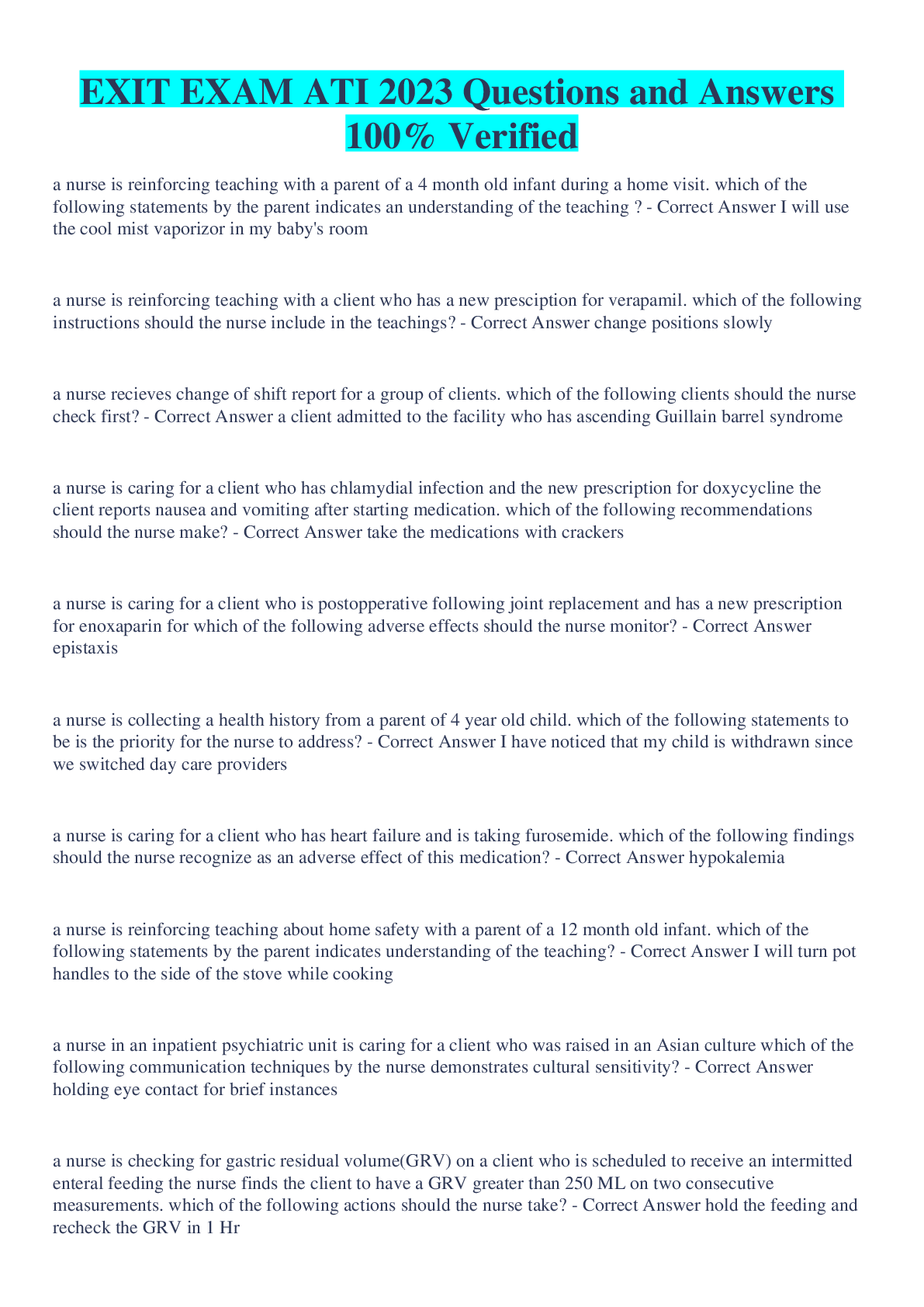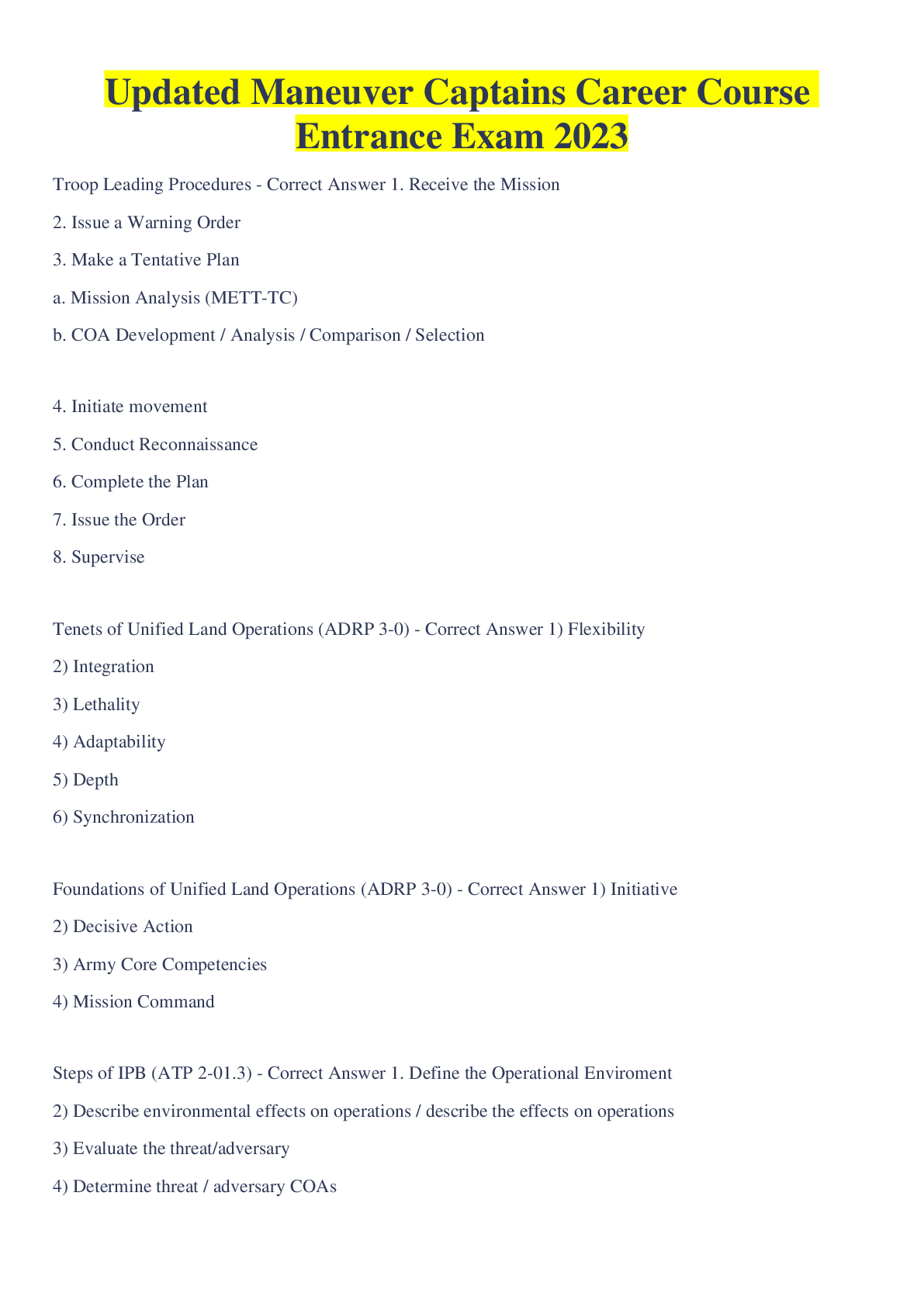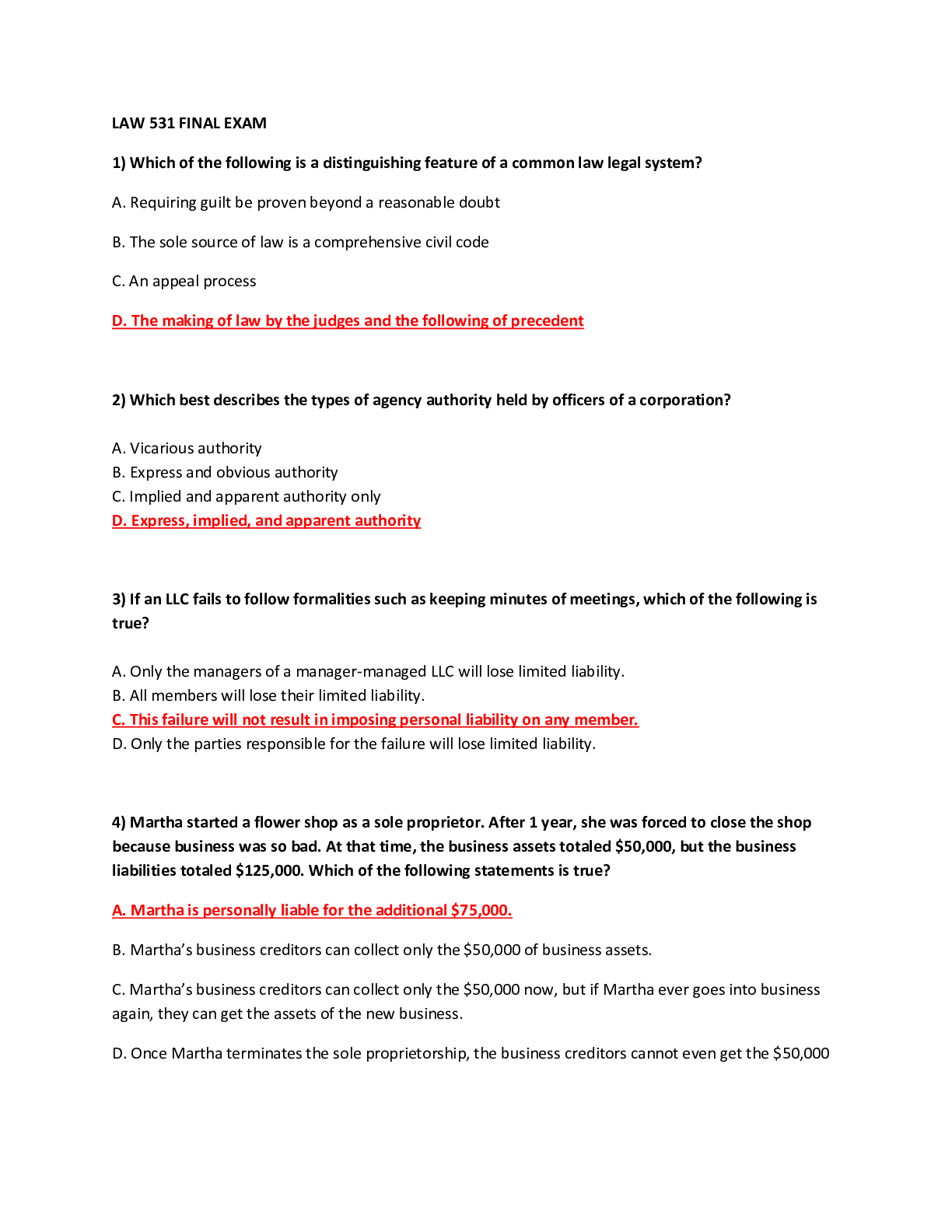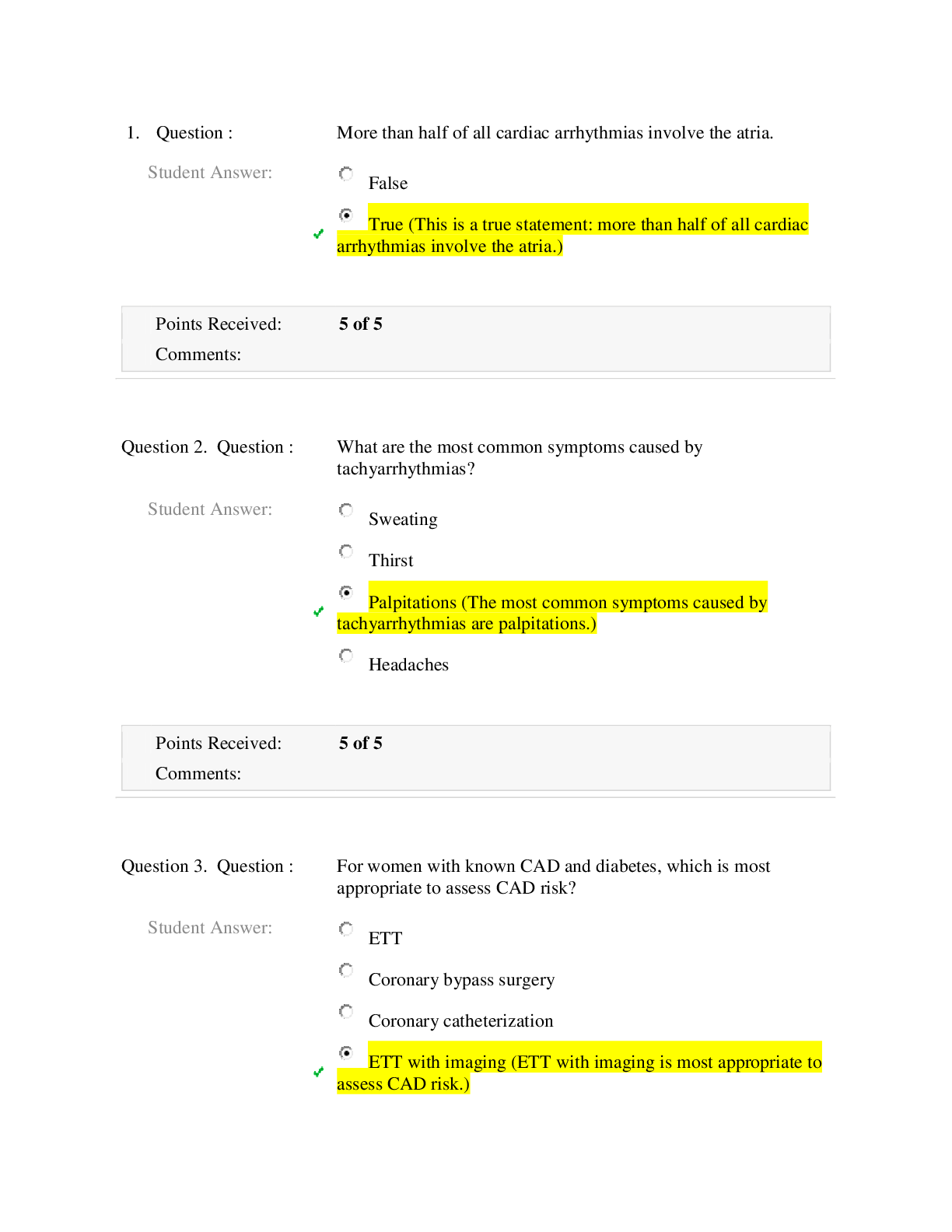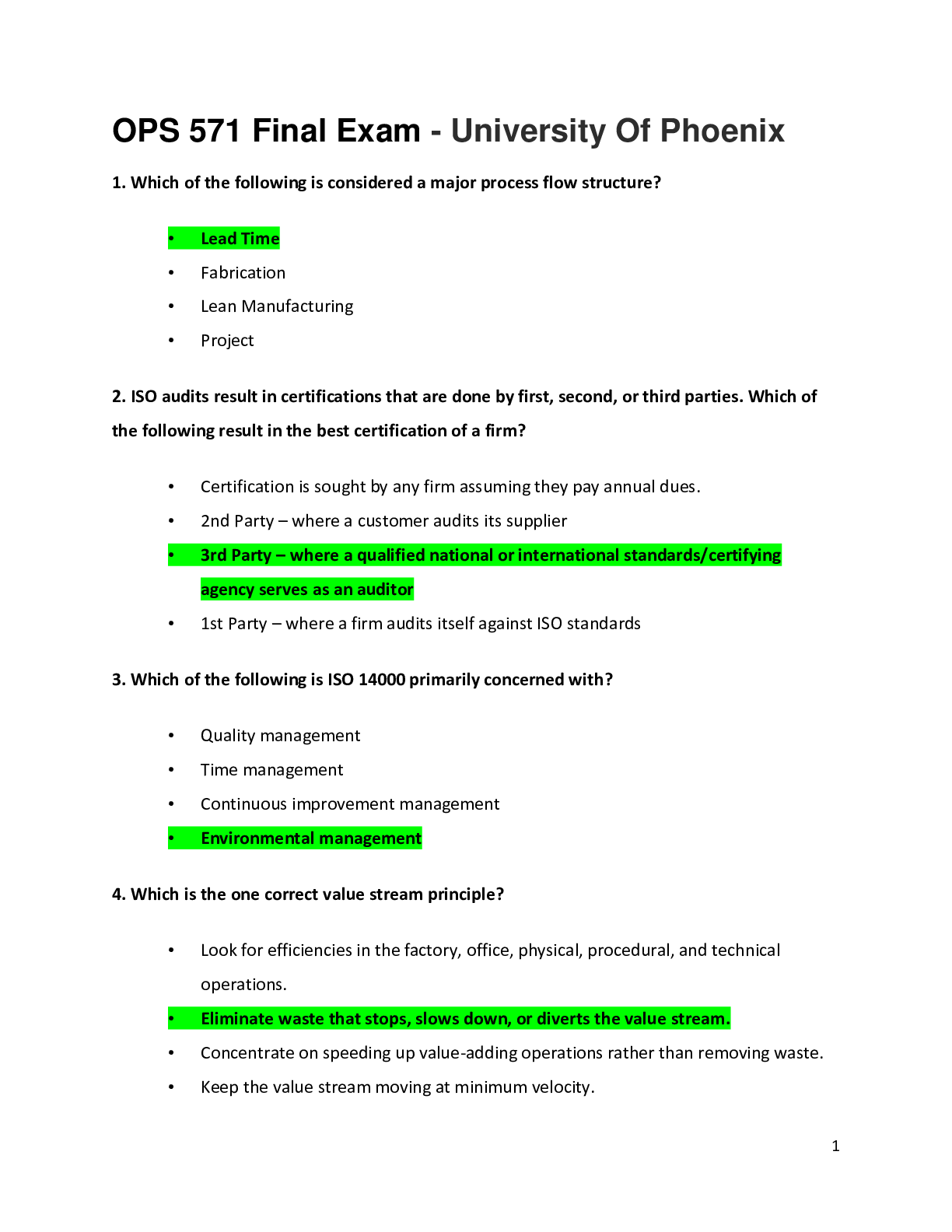Portage Learning BIOD 151 A&P 1 Final Exam 2022
Document Content and Description Below
Portage BIOD 151 Final Exam List two organs contained in the abdominal cavity. - correct answerThe abdominal cavity contains the stomach, intestines, spleen and liver a. The purpose of cellular re... spiration is to produce ADP. (T or F) - correct answera. False- (ATP is produced, not ADP) b. Peripheral proteins are found on the outer surface of a cell membrane. (T or F) - correct answerb. True c. Exocytosis is the process that occurs to bring biomacromolecules inside the cell. (T or F) - correct answerc. False- (This process is called endocytosis) d. Receptor mediated endocytosis uses a signaling molecule from another cell, binding to the cell membrane to bring about changes within the cell proteins. (T or F) - correct answerd. True e. Endocytosis is a passive process. It does not require cellular energy expenditure.(T or F) - correct answere. False- (Endocytosis is an active process and requires cellular energy) In your own words, discuss Tay Sachs disease. What organelle within the cell is impacted? What are the symptoms of the disease and why do they occur? - correct answer(1)Lysosomes (2) buildup of toxic lipids inside the cell (biomacromolecules) (3) disability and death, In the genetic disease known as Tay Sachs, one of the normally present digestive enzymes inside lysosomes is lacking. Thus, a toxic lipid in the brain cells cannot be broken down. The resulting buildup of lipids in these cells can cause intellectual disability and death. You are observing two cells under the microscope. They are the same type of eukaryotic cell but one appears much larger. Based on appearance alone, which one would you expect to be carrying out respiration at a more active rate, the larger or smaller cell? Explain why. - correct answerThe smaller cell. Cells need to remain relatively small because as a cell expands the amount of surface area relative to the volume of the cell decreases. The smaller cell is more active because relative to its volume, its surface area is larger than a bigger cell. With a larger surface area (relative to its volume) this allows the metabolic processes to occur faster. Explain what happens to the soft palate during swallowing. Why? - correct answerThe upward movement of the soft palate prevents food or liquid from entering the nasal passages during swallowing. Air and food pass in which one of the following areas: Trachea, Nasopharynx, Oropharynx, Alveoli - correct answerOropharynx [Show More]
Last updated: 2 years ago
Preview 1 out of 3 pages

Buy this document to get the full access instantly
Instant Download Access after purchase
Buy NowInstant download
We Accept:

Reviews( 0 )
$5.00
Can't find what you want? Try our AI powered Search
Document information
Connected school, study & course
About the document
Uploaded On
Oct 26, 2022
Number of pages
3
Written in
Additional information
This document has been written for:
Uploaded
Oct 26, 2022
Downloads
0
Views
62

